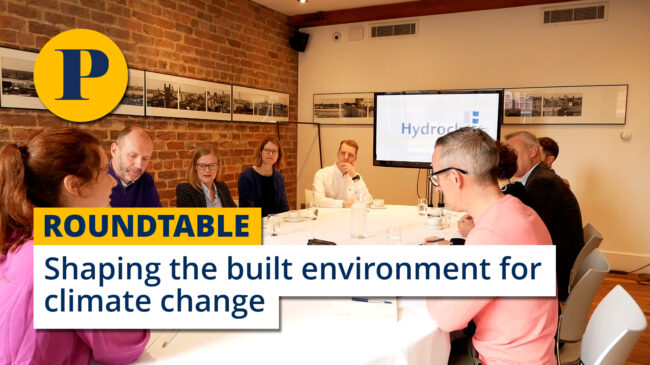Green Week: Waste Management Economy
 Green Week on Place North West, published in association with the Environment Agency, Envirolink Northwest and Hill Dickinson
Green Week on Place North West, published in association with the Environment Agency, Envirolink Northwest and Hill Dickinson
The move to a more resource-conscious economy will mean big changes for developers, says Nigel Mattravers of financial advisors Grant Thornton.
The property and regeneration industries have a major role to play in the future sustainability of the planet. And by playing a bit smarter with project planning, developers can save cash as well as carbon.
A few short years ago there was an established pattern for how to do development which followed the progress of a site through acquisition, demolition, new design, planning, construction then lettings or sales.
The guidance set out in the Institution of Civil Engineers' Demolition Protocol is becoming increasingly important as developers need to actively consider what existing buildings are made of, how they are to be disposed of and whether they can be reused either in their entirety or as secondary materials within the development. Developers should be looking at sending the bare minimum of materials to landfill from their sites.
The cost and carbon saving made by not transporting material to landfill and reusing them on site is considerable. Developers should work closely with their architects and get them involved in the site at an early stage to maximise the cost saving and reduce the overall emissions associated with the development.
Many local authorities are now asking developers to provide a plan for what will happen to the on-site materials and this is only going to get more and more prevalent.
Developers of large-scale schemes need to start thinking of waste as the "Fourth Utility". Just as water companies and electricity suppliers require the infrastructure to be in place to enable a large scale housing development to operate, developers will need to provide plans or guidelines for how they are going to deal with waste and manage recycling.
There are imaginative solutions available such as the vacuum-removal of waste from residences to a central hub for collection. These systems are in operation now and are especially useful in areas of short-term residency and for high-end residential developments.
Financial incentives are available in terms of feed in tariffs for micro generation of power and also renewable heat incentives for the export heat generated by green power. We expect the renewable heat incentives to be amended to further incentivise the generation of power from these sources rather than just utilising the heat generated.
Incentives will continue to be delivered through the planning system which will remain a mixture of carrot and stick. We believe that future governments will move the planning system in the direction of determining schemes based on their overall sustainable contribution in the long term rather than taking a shorter term judgment on the use of land as is the current case.
Whatever happens in the future, the days of waste being considered as a resource are upon us.



